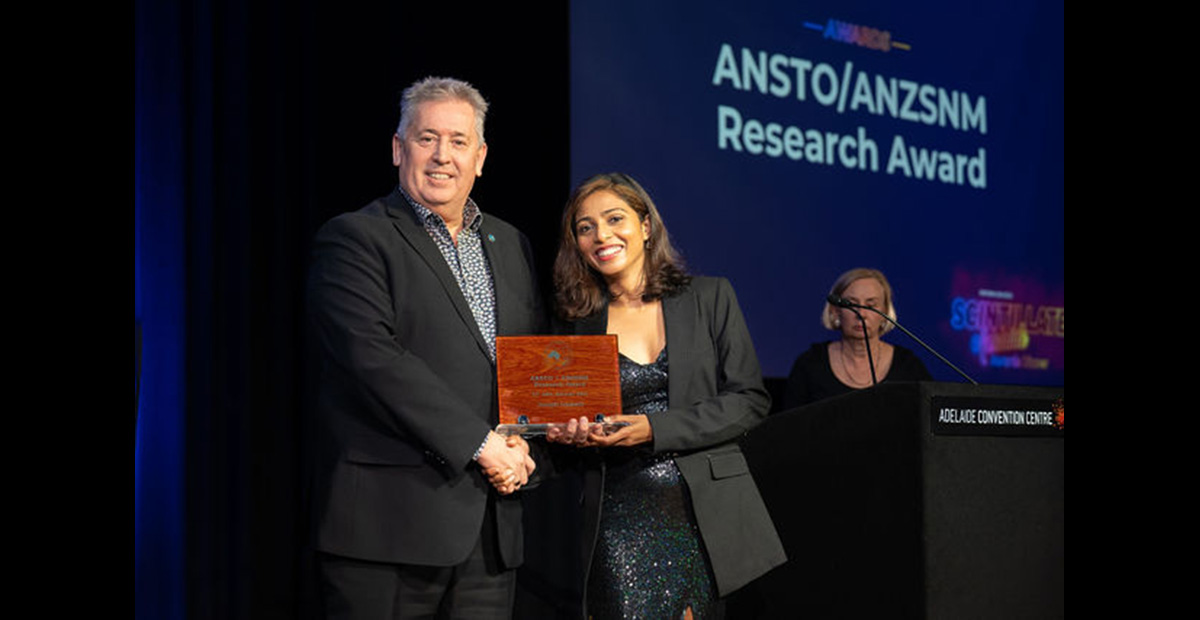Shifaza Mohamed (right) accepts the ANSTO ANZSNM Research Award at the 2023 ANZSNM Annual Scientific Meeting conference in Adelaide.
A PDL1-PET mesothelioma imaging project backed by multiple institutions, including NCARD, has won an ANSTO ANZSNM Research Award worth $20 000.
Last weekend at the Annual Scientific Meeting of the Australian and New Zealand Society of Nuclear Medicine (ANZSNM), it was announced that the proposal ‘Zirconium-89 labelled antibodies for imaging PD-L1 dynamics in mesothelioma in response to immunotherapy and chemotherapy’ had won $20 000 in funding through a grant provided in partnership with the Australian Nuclear Science and Technology Organisation (ANSTO).
Dr Joseph Ioppolo, who is associated with the University of Western Australia and Sir Charles Gairdner Hospital, is the principal investigator on the grant. NCARD researchers Dr Alistair Cook and Dr Tracy Hoang, current clinical director Associate Professor Ros Francis, and former director Professor Anna Nowak are all credited as co-investigators.
The grant funds a companion study to an ongoing clinical trial that aims to demonstrate that functional PET imaging can provide a more realistic and dynamic view of PD-L1 levels in mesothelioma tumours over time, and thus allow clinicians to identify which patients are most likely to benefit from immunotherapy with anti-PD-L1 immune checkpoint inhibitors.
The concurrent study conducted in mice will answer questions such as how PD-L1 expression in a growing tumour changes over time in response to chemotherapy or immunotherapy. The results will allow scientists to decide whether PD-L1 expression can be used to help individualise patient treatment.
Firstly, radiochemists will develop a mouse-specific PD-L1 radiotracer that behaves similarly to the human PD-L1 radiotracer. Then, researchers will create an optimised procedure for PET imaging and analysis for mouse mesothelioma models. Lastly, the team will investigate how PD-L1 levels change in the mouse tumours in response to chemotherapy and immunotherapy treatment, using the novel imaging procedure.
If the trial is successful, the study may be expanded to include other treatments for imaging, such as radiotherapy, surgical treatment and combination chemo-immunotherapy.
Well done to the team on this achievement!
For more information, please take a look at our open Clinical Trials, or click here.


